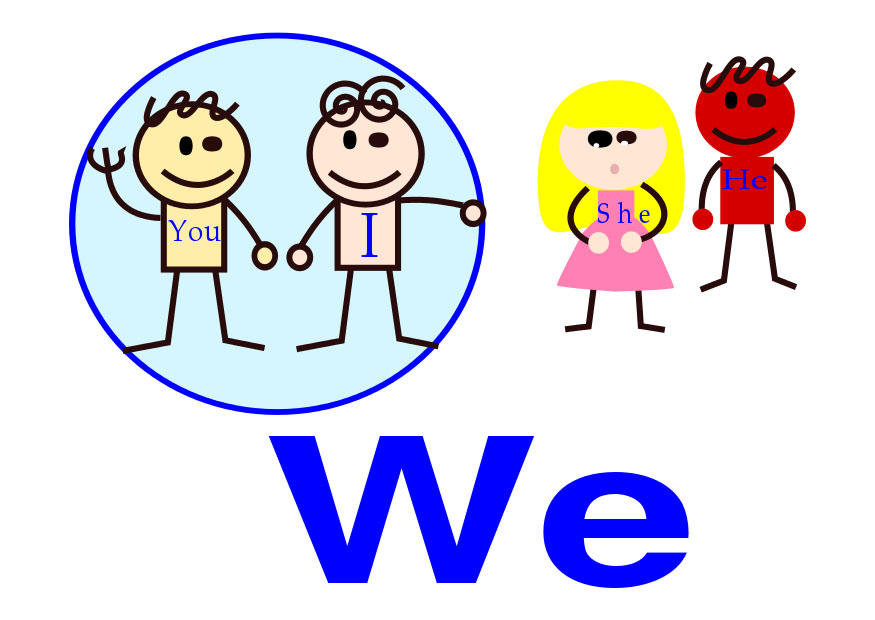And We Know - The Different Ways We Get Information
Have you ever stopped to think about how we really know things? It’s a question that, frankly, pops up more often than you might guess. Sometimes, we hear a little talk about something, and that’s when we, so, just know of it. It’s a bit like getting a hint about a distant spot. You might catch a name, or a general idea, but the full picture isn't quite there. This initial grasp, this light touch on a piece of information, is often how we first connect with ideas or places that aren't directly in front of us.
There’s another way to hold onto information, though, one that feels much more complete. When you truly get to experience something by being there yourself, or by spending time looking into all its details, that’s when you really know about it. It’s a bit like the difference between hearing a song playing and making the music yourself. One gives you a general sense, and the other offers a deep, personal connection. This distinction, you know, makes a big difference in how we talk about what we’ve learned, and how we share what we’ve picked up.
This idea of knowing something through a quick mention versus knowing it from a deep look is quite interesting, isn't it? It means that when we say "and we know," the way we know can actually vary a lot. It depends on whether we’ve just heard a little bit, or if we’ve spent time truly getting a feel for the subject. This subtle difference shapes our conversations and how we put our thoughts out there, giving our words a certain weight, or maybe just a light touch, depending on the situation.
Table of Contents
- What's the Real Difference When We Say "And We Know"?
- How Does Our Past Knowing Shape What We Say Now?
- What About the Things We Don't Quite Grasp Yet?
- Who Do We "Know" Without Being Close?
What's the Real Difference When We Say "And We Know"?
It turns out that the way we talk about what we hold as fact can be a little more involved than we might first imagine. When someone says, for example, that our home planet is the only one where life is present, and we know this, it makes you think about the exact sort of knowing they mean. Is it a deep, personal grasp, or more of a general sense? This question, you know, gets at the very heart of how we use our words to share information.
Knowing Just a Little, and We Know
There's a specific kind of knowing that comes from a brief encounter or a quick mention. We might say we "know of" something when we have, in a way, just brushed past it. It's like hearing a piece of news from a friend, or maybe seeing a picture of a place you've never visited. You have a sense of its existence, a basic idea, but you haven't really gotten into the details. For instance, you might know of a famous landmark because it's been mentioned in a story, but you haven't seen it with your own eyes. This light level of connection is a common way we pick up information, and it shapes how we talk about things, especially when we are just getting started with a new topic. It’s a very common way to begin to hold onto facts, that is for sure.
This initial connection often comes from a personal touch, too. Someone might tell you about a local shop, and because they've spoken about it, you "know of" it. It’s not that you've been there yourself, or even looked it up, but the fact that a person you trust has brought it up gives you that basic level of recognition. This is where, in some respects, our personal experiences, even indirect ones, play a part in what we can claim to know. So, when we use the phrase "and we know" in this context, it often points to a general awareness, a kind of passing familiarity that comes from simple contact.
Knowing a Lot More, and We Know
Then there's the deeper level of connection, the kind where you truly "know about" something. This happens when you've spent time with the subject, maybe even experienced it directly. Think about that local shop again. If you've gone inside, looked at the goods, chatted with the owner, and perhaps even bought something, you now know about it. You have a fuller picture, a more complete sense of what it is all about. This level of knowing comes from a more thorough look, a deeper personal involvement that goes beyond just a quick mention.
When we say "and we know" with this deeper meaning, it carries a different weight. It suggests that our grasp of the subject is more solid, more detailed. It’s not just a general idea; it’s a collection of facts, feelings, and perhaps even personal memories. This is the kind of knowing that lets you speak with a bit more confidence, because you have a broader collection of details to draw from. It’s the difference between hearing a simple tune and being able to hum the whole song, complete with all its turns and changes. This deeper form of knowing, in a way, builds a stronger link between you and the subject, making your connection much more firm.
How Does Our Past Knowing Shape What We Say Now?
Our words about what we hold as fact can also change depending on when we first got the information, and whether it’s still fresh in our minds. It’s interesting to consider how the timing of our learning affects the way we speak about it. This is where phrases like "already know" and "have already known" come into play, showing how our past experiences with information influence our present conversations. This distinction, you know, can be quite subtle, but it truly affects the feel of what we are trying to get across.
When We "Already Know," and We Know
When we say "I already know" something, we are usually talking about a piece of information that is clear in our minds right now, at this very moment. It’s a present state of holding onto facts. For instance, if someone tells you the sky is blue, you might respond, "I already know that." The information is immediately available to you, it's something you are aware of right then. This phrase points to a current grasp of facts, a piece of information that is ready to be used or spoken about without any thought. It’s a quick confirmation of what’s in your head right now.
This way of speaking shows that the information is settled and present for you. It’s not something you need to go back and check; it’s simply there. This kind of knowing is very direct, and it means that the information is currently part of your immediate awareness. So, when we use "and we know" in this sense, it means that the information is a current part of our shared understanding, something that is clear to us right now, without needing any further thought or searching. It really is a simple statement of current grasp.
When We "Have Already Known," and We Know
On the other hand, when we use the phrase "I have already known," it often suggests a state of holding onto facts that started in the past and has continued up to the present. It’s less about a sudden realization and more about a sustained awareness. For example, if you've been aware of a certain person's kind nature for a long time, you might say, "I have already known that they are a good person." The knowing began at some point before now and has remained true over time. This phrase suggests a longer-standing connection to the information, a continuous state of awareness.
This way of speaking implies a history with the information. It’s not just a current fact; it’s a fact that has been true for a while and continues to be so. It can also be used when you are checking if someone has completed a task that started in the past and might still be ongoing, like asking, "Would you be so kind as to tell me if you have checked the file?" This means, has the checking process, which started at some point, been finished? So, when we say "and we know" with this phrasing, it points to a piece of information that has been part of our collective grasp for some time, a steady awareness that has lasted through a period of time.
What About the Things We Don't Quite Grasp Yet?
It’s a funny thing, but sometimes, the more we learn, the more we realize how much we don't actually know. This idea of what we don't yet grasp is a big part of how we understand the world. There are things we are aware we don't know, and then there are things we don't even realize we don't know. It’s a bit like looking at a map and seeing blank spots; you know there’s land there, but you don’t know what’s on it. This thought, you know, can be both a little humbling and a little exciting, pushing us to seek out more.
The Idea of Things We Don't Know, and We Know
One interesting idea is what some people call "known unknowns." This means we are aware that there are things we don't know, even if we don't have all the specific details. For instance, a person might be planning a big project, and they know there will be problems they haven't thought of yet. They don't know what those exact problems will be, but they know that some will pop up. It’s like knowing you'll face some bad weather on a trip, but not knowing if it will be rain, snow, or just a lot of wind. This recognition that our grasp of facts has limits is actually quite important.
This type of knowing, where we acknowledge what we haven't yet figured out, helps us prepare for what might come. It means we aren't surprised when new questions or challenges appear, because we had already, in a way, made room for them in our minds. It’s a way of being ready for the unexpected, simply by knowing that the unexpected exists. So, when we use the phrase "and we know" in this context, it often refers to our collective understanding that there are boundaries to our current grasp, and that there are still many questions out there that need answers, even if we don't yet know what those questions are in full detail.
This acceptance of what remains unclear is, frankly, a sign of growth. It shows a certain wisdom to say, "Yes, and we know that there are things we don't know." It means we are open to learning more, to filling in those blank spots on our mental maps. It’s about being okay with not having all the answers, and understanding that the path to deeper grasp often starts with recognizing where our current grasp ends. This humble approach to facts can lead to much more honest conversations and a greater drive to find out more about the world around us, too.
Who Do We "Know" Without Being Close?
Sometimes, we cross paths with people regularly, for years

WE.org - WE Charity | We're in this together

Image we - Free printables - Img 29125.

Pilgrims’ Pronouns: Reflections on “We” – University of Wisconsin Press